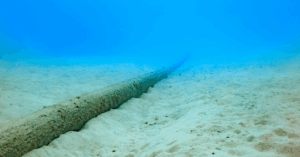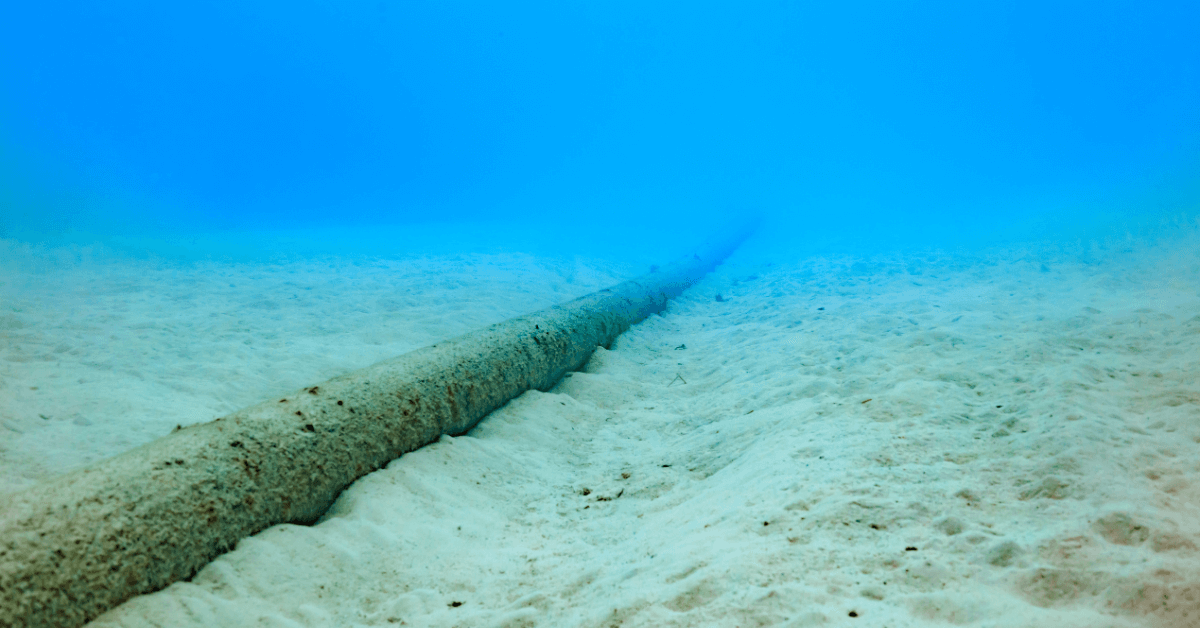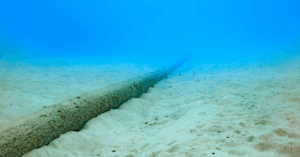
Dutch Freighter With 16 People Onboard Runs Aground In Canada’s Northwest Passage
September 8, 2025
Kongsberg Secures Contract For World’s First Full Electric Tug Integration In India
September 8, 2025

Internet services across South Asia and the Middle East were disrupted after multiple undersea cables in the Red Sea were damaged, according to internet watchdogs and telecom providers.
Countries including India, Pakistan, Saudi Arabia, Kuwait and the United Arab Emirates reported degraded connectivity, with users experiencing slow speeds and intermittent access.
NetBlocks, a global internet monitoring group, said the outages were linked to failures in the South East Asia–Middle East–Western Europe 4 (SMW4) and the India-Middle East-Western Europe (IMEWE) cable systems near Jeddah, Saudi Arabia.
In Kuwait, officials also confirmed that the FALCON GCX cable was cut, worsening the disruptions in the region.
Microsoft said its Azure cloud computing platform, the world’s second-largest after Amazon Web Services, was affected by the cable cuts.
In a status update on Sunday, the company explained that traffic passing through the Middle East might face higher latency.
Microsoft said it redirected connections through other network routes to prevent a total service outage, adding that traffic outside the Middle East was not affected. The company noted the issues started at 05:45 GMT on September 6 and promised to provide daily updates.
Despite rerouting, Microsoft Azure users in several countries noticed slower response times. Pakistan Telecommunications, one of the country’s largest service providers, warned customers that they might face degradation during peak hours, adding that its international partners were working to resolve the problem. UAE users on the state-owned Du and Etisalat networks also reported reduced speeds.
Authorities in Saudi Arabia, however, did not acknowledge the disruption and did not respond to requests for comment. Global cable operators Tata Communications, which manages the SMW4 system, and Alcatel Submarine Networks, which oversees the IMEWE system, have also not issued public statements.
Subsea cables are critical to global internet traffic, forming the digital backbone that links Asia, the Middle East, and Europe. They are vulnerable to damage from ship anchors or natural incidents, but can also be targeted in attacks. Repairs often take weeks as specialised vessels must locate the damage before restoring service.
The Red Sea cable cuts come at a time of rising tensions in the region. Yemen’s internationally recognised government-in-exile said the incident cannot be separated from Houthi activities, describing it as part of ongoing threats to global infrastructure. The country’s information minister, Moammar al-Eryani, urged the international community to act, warning that digital networks are the “lifeline of the modern world.”
On Sunday, Yemen’s Houthi-run Al Masirah TV channel also acknowledged the cable cuts, citing reports from NetBlocks. In the past, the Houthis have been accused of planning to attack undersea cables as part of their campaign against Israel, though the group has denied responsibility for earlier incidents. In early 2024, several cables in the region were damaged, possibly by a ship anchor during an attack, but Houthis rejected the claims that they were behind it.
References: Reuters, Aljazeera
Source: Maritime Shipping News


